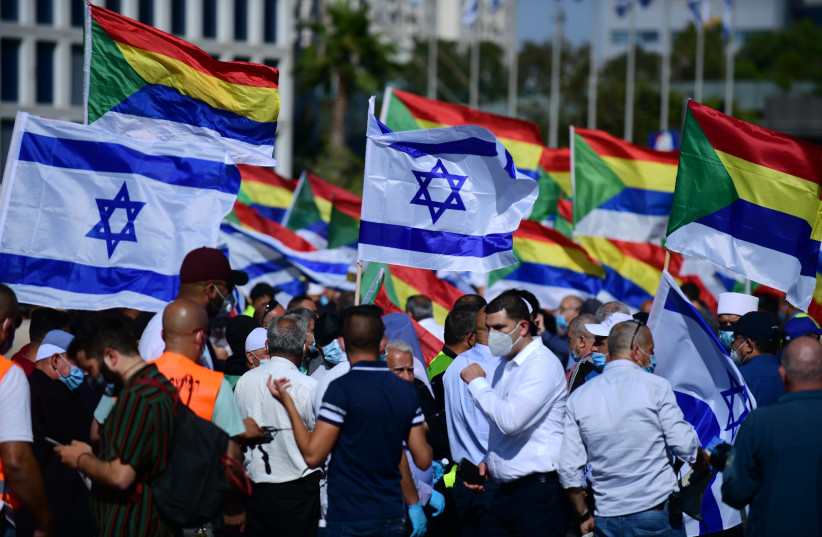The recently resurfaced debate on the Nation-State Law has put a spotlight on Druze and Bedouin IDF soldiers who fight alongside their Jewish brothers in arms but of whom the law makes no mention and does not guarantee them equal rights.
For Druze soldier Capt. Rami Sheikh, this doesn’t make a difference for his dedication to his duty.
“It’s something that needs to change, but it doesn’t change my opinion or my readiness to serve in the IDF like the rest of our soldiers,” he told The Jerusalem Post. “It doesn’t cause me to feel like I don’t belong here because at the end of the day, I love my country, and I want to defend it.”
Sheikh grew up in the northern village of Abu Snan and enlisted four years ago. He joined the Atuda program that allows soldiers to obtain a university degree in the field relevant to their position in the army, and as part of the program; Sheikh studied medicine at Hadassah-University Medical Center and has served as a medical officer in the Givati brigade for just over a year and a half.
Usually, as a medical officer, Sheikh is responsible for the well-being of his brigade’s soldiers and their readiness for war and ensures that they are able to take care of each other in battle. During the war, he managed the evacuation and medical attention operations, taking care of wounded soldiers and getting them to the hospital.

The October 7 massacre
“On October 7, I was at home up north,” he recounted. “When I realized what was happening, I didn’t think twice. As soon as I saw it, I left for the South.”
Sheikh and a number of officers from the brigade initially went to Sderot but when they got there, they realized that it was more or less under control and that they were needed more elsewhere, so they made their way to Re’im, where the rave festival was attacked.
“On the way, I saw so many wounded and dead people, both victims and terrorists,” he said. “At Re’im, I had a difficult experience with there being so many dead and injured people. At first, there weren’t many forces, so we evacuated as many people however we could. We were able to save dozens of people, but unfortunately, there were some that we couldn’t save.”
Sheikh and his team spent five hours in Re’im before moving on to Kfar Aza where they were told many people were still trapped in their safe rooms.
“I was there for more than 40 hours,” he said. The soldiers there fought like lions. Some of my soldiers were wounded and I had to take care of them. The situation was worse than we expected, but luckily, we were able to save some of the people.”
Despite the difficult experiences of the first few days, Sheikh said that morale amongst the soldiers has remained high throughout the war.
“Operations are going as planned, and we’ve been able to save everyone who could potentially be saved,” he said. “We want to keep going, and we see it as a success that some of the hostages have been released. We’re ready to continue. We want to obliterate Hamas and win.”
Sheikh added that much of the success is down to the unity in the brigade, and especially to medical reservists he works with.
“They’ve left their families and their hospitals, and it’s not to be taken for granted,” he said. “They want to get to every wounded soldier immediately and help heal them and get them home.”
When the war ends, Sheikh plans to go back to his medical training and complete a surgical internship after which he may return to the army.
“The war has made me feel more strongly that I need to continue in the IDF,” he said. “But the internship is six years, so a lot can change in that time.”
